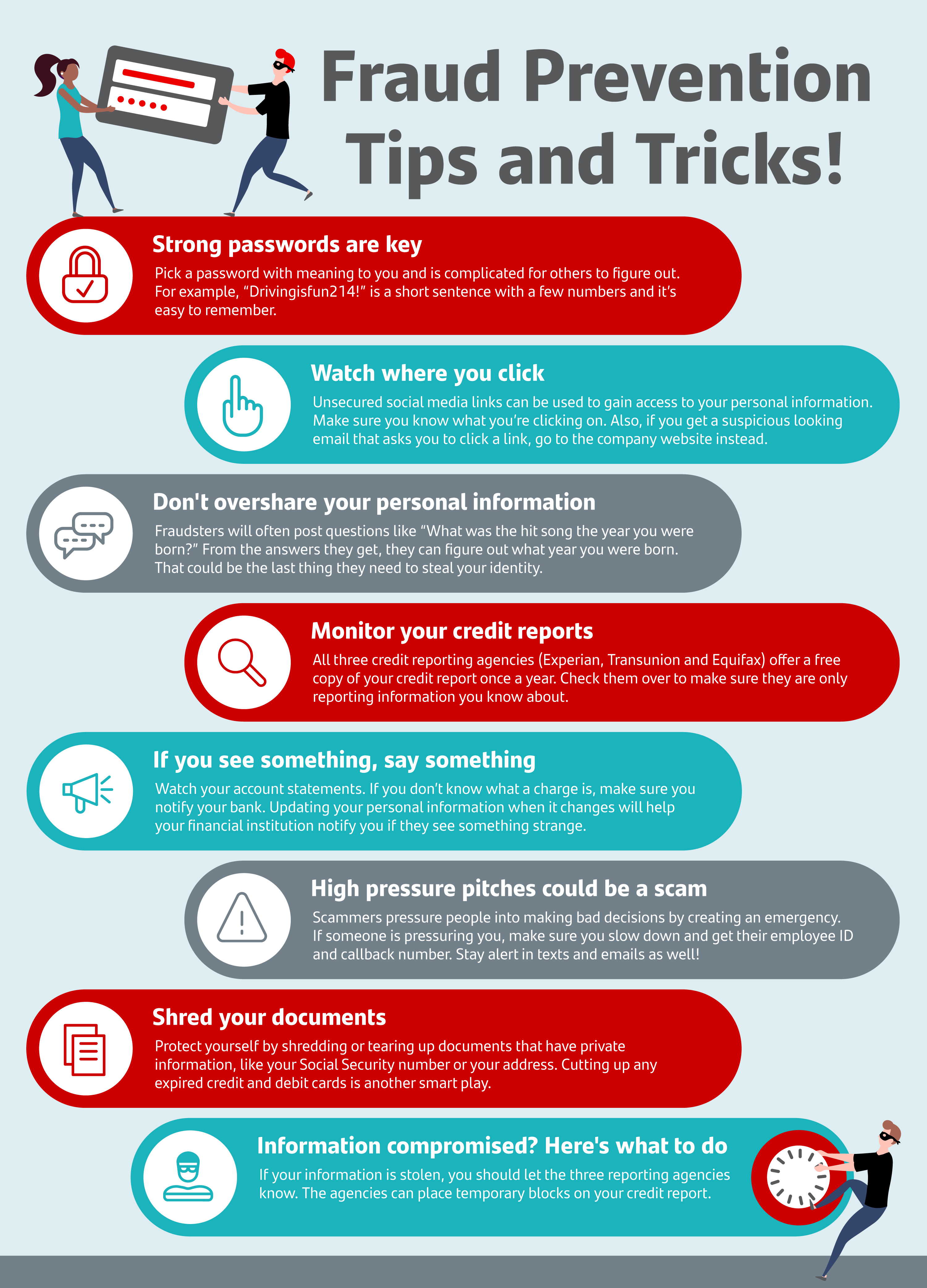Fraud can be a scary word, especially if it’s happening to you. Now more than ever, the signs of fraudsters are all around us. Fraud indicators could be from companies about data breaches or emails letting you know your personal information has been put at risk. You might have heard warnings on the news or even from your bank about fraud.
Don’t worry though. If you follow some easy steps, you could be well on your way to protecting your financial future. Fraud doesn’t have to be scary if you know what to look for.

Strong passwords are key
Pick a password with meaning to you and is complicated to figure out. For example, “Drivingisfun214!” is a short sentence with a few numbers and it’s easy to remember.
Watch where you click
Unsecured social media links can be used to gain access to your personal information. Make sure you know what you’re clicking on. Also, if you get a suspicious looking email that asks you to click a link, go to the company website instead.
Don’t overshare your personal information
Fraudsters will often post questions like “What was the hit song the year you were born?” From the answers they get, they can figure out what year you were born. That could be the last thing they need to steal your identity.
Monitor your credit reports
All three credit reporting agencies (Experian, Transunion and Equifax) offer a free copy of your credit report once a year. Check them over to make sure they are only reporting information you know about.
If you see something, say something
Watch your bank account statement. If you don’t know what a charge is, make sure you notify your bank. Updating your personal information when it changes will help the bank notify you if they see something strange.
High pressure pitches could be a scam
Scammers pressure people into making bad decisions by creating an emergency. If someone is pressuring you, make sure you slow down and get their employee ID and callback number. Stay alert in texts and emails as well!
Shred your documents
Protect yourself by shredding or tearing up documents that have private information, like your Social Security number, or your address. Cutting up any expired credit and debit cards is another smart play.
Information compromised? Here’s what to do
If your information is taken, you should let the three reporting agencies know. The agencies can place temporary blocks on your credit report.



